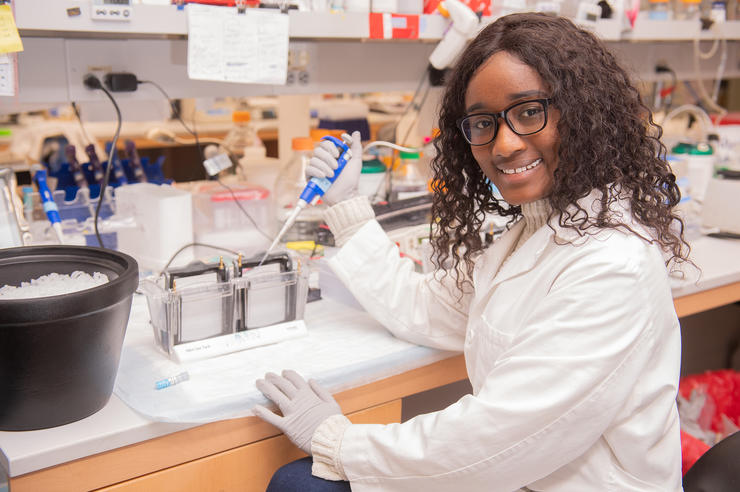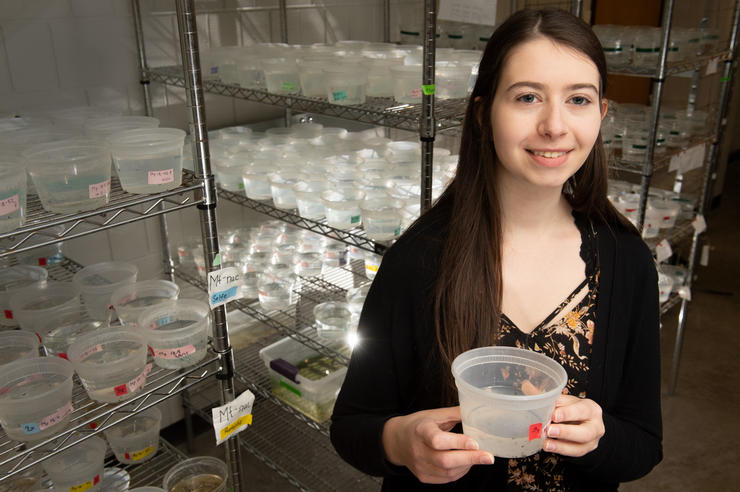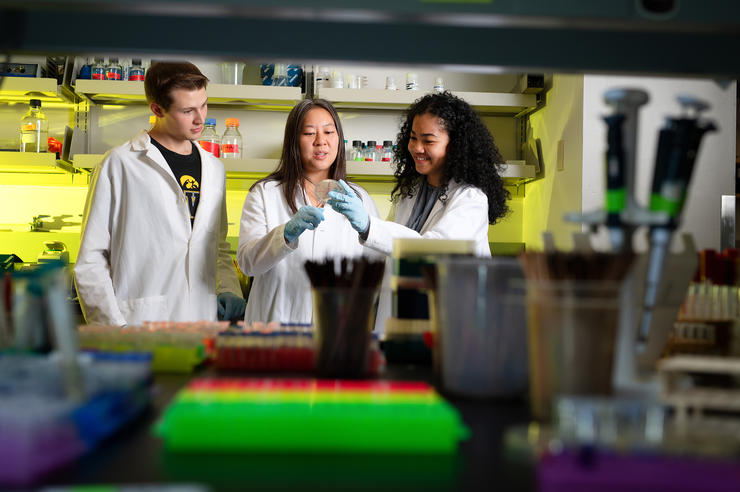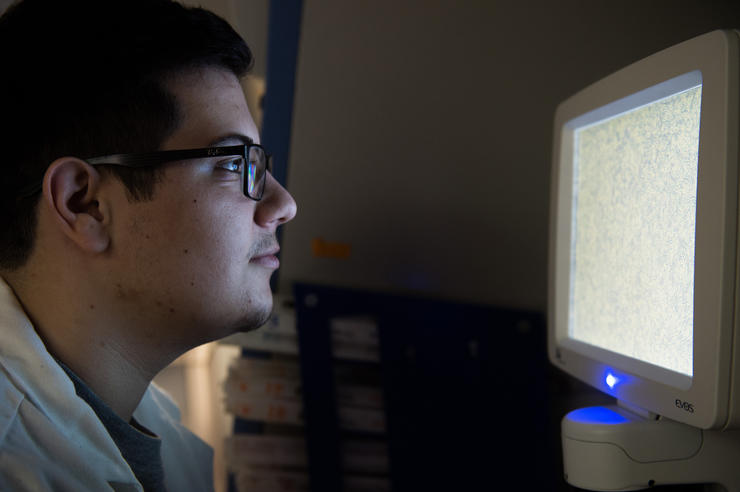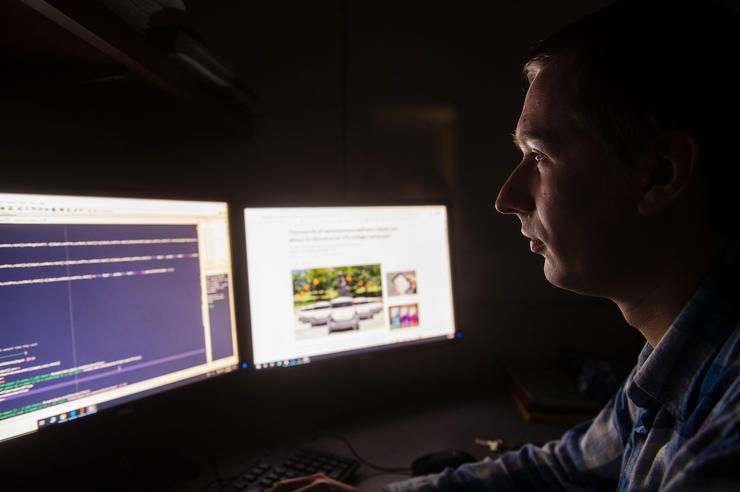A passion to keep kids out of pain
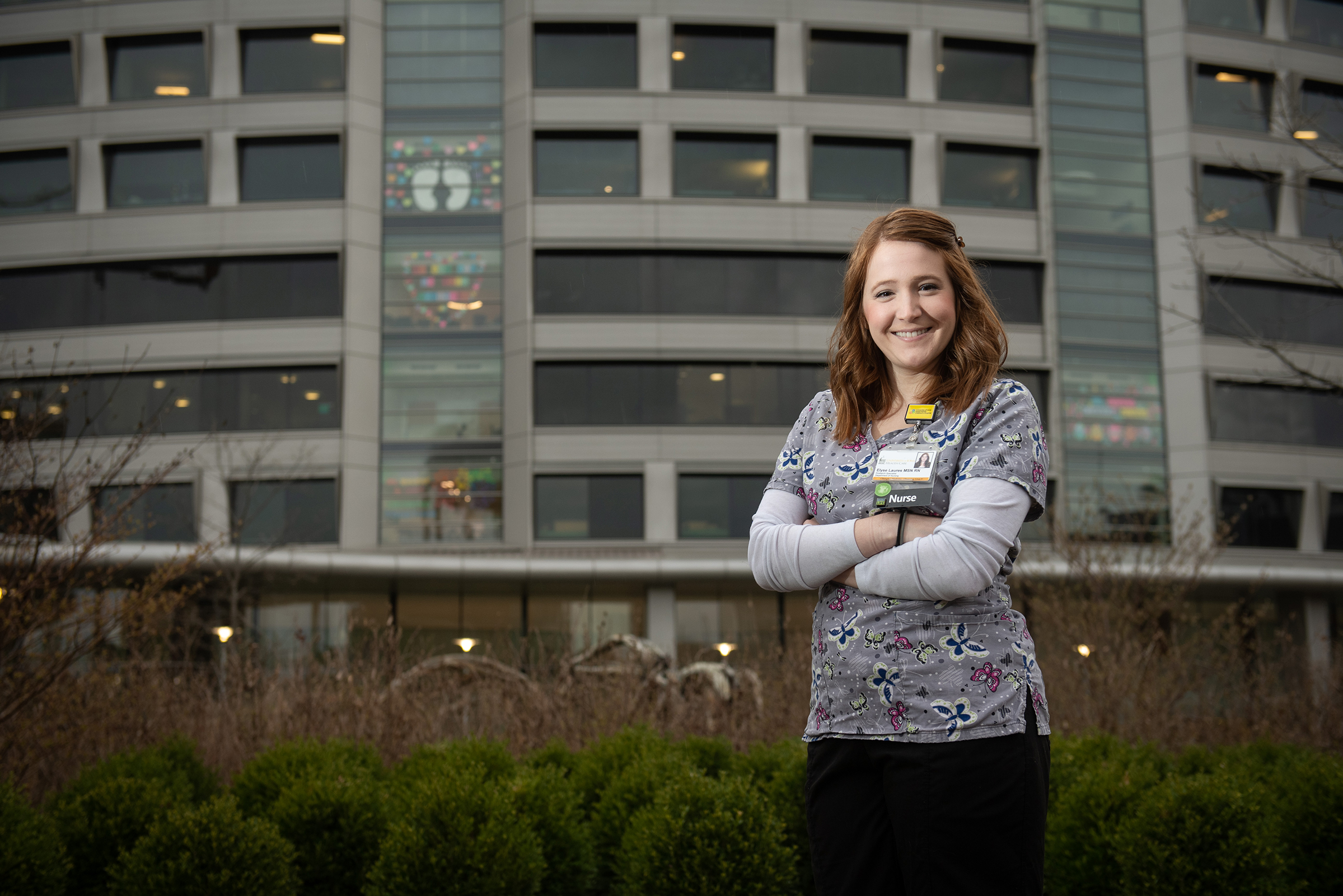
Elyse Laures has been smitten with kids since becoming a big sister at 13. She acquired a passion for taking care of children while watching her baby brother grow and develop through normal childhood milestones. From that point on, she knew her career would involve children.
While earning an undergraduate degree in nursing at Valparaiso University, Laures worked in a daycare, as a tutor and supplemental instructor, and as a student nurse in a pediatric intensive care unit (PICU) in her hometown of Chicago.
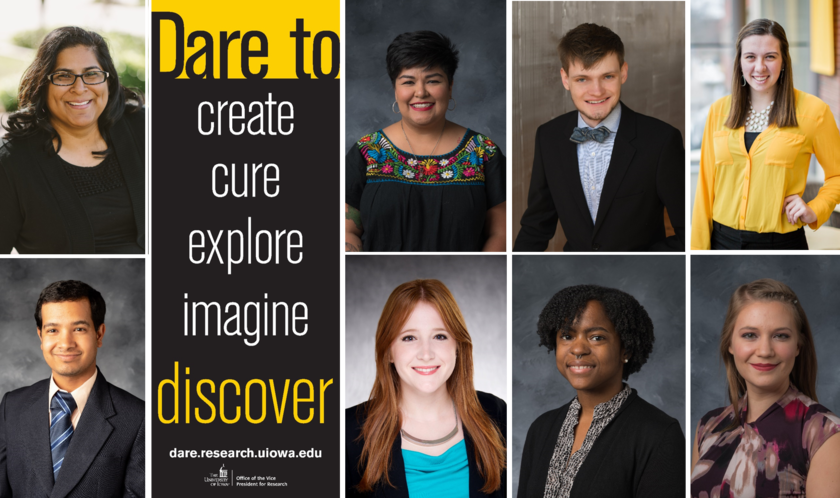
Now, as a student in the PhD program in the University of Iowa College of Nursing, she is poised to help improve the lives of kids who need her most: those hospitalized in a PICU. Laures is researching pain assessment in pediatric patients and how nurses make judgments and decisions regarding pain and sedation management. She wants to empower nurses to make the best choices and enrich the healing process.
“PICU nurses are amazing nurses who take care of super sick kids, but there is so much going on in the intensive care unit. From my experience working in the PICU, I have found that there are knowledge and research gaps that need to be filled,” says Laures, who moved to Iowa City to work in the PICU at the UI Stead Family Children’s Hospital before applying to the PhD program. “We don’t want any child to be in pain. That can lead to horrible lifelong effects. Just look at children’s fear of needles due to vaccinations and normal procedures that healthy kids have to get. Then compare that to kids in the PICU who can develop PTSD because their experience is just so traumatic.”
While validated pain scales are used to help health care teams assess pain in both adult and pediatric patients, Laures says they don’t always apply when assessing pain in children admitted to the PICU. There, pediatric patients may not yet be able to communicate, or they may be intubated and requiring sedation or a paralyzing agent to maintain their airway. In her research, Laures has found that nurses often rely on “assumed pain present” when making medication decisions for children who cannot verbally or behaviorally communicate their pain.
“I have developed a whole new perspective at Iowa. I have learned how to conduct sound research, and I also see how it then influences practice. I love seeing both sides. A lot of connections have formed for me, and I find it amazing. Although I no longer work in patient care, I understand how research can impact patient care.”
“There are no guidelines or research on what to do in these situations. So even though they say you should administer pain medication if a patient is in pain, how are nurses making those decisions for these kids? What is their trigger point?” she says. “While we’re waiting for some magical biomarker to be established to identify pain, we need to make sure these kids are being adequately taken care of.”
Working as a nurse in the PICU was both challenging and enjoyable for Laures, but she couldn’t deny her desire to further her education and have an even bigger impact on patient care. Becoming a nurse practitioner didn’t seem the right fit for her, so she started looking at doctoral programs. Iowa, she says, was an obvious choice.
“The Iowa model of evidence-based practice is used throughout the world, and I think it is set up to make people successful in implementing evidence into practice,” says Laures, who now works part time in the Office of Nursing Research and Evidence-Based Practice at UI Hospitals & Clinics. “And then you have the collaboration between the College of Nursing and the UI hospital. Those two things together can really help make research stronger. Connections at the hospital to help researchers at the college identify gaps in practice, and researchers at the college have the hospital to help study and then implement their findings.”
The University of Iowa College of Nursing is routinely recognized as one of the elite nursing schools in the country, and it is the smallest in the Big Ten. Several program areas rank among the nation’s best, including clinical nurse leader, nursing service administration, adult/gerontology acute care, primary care, and anesthesia.
Ann Marie McCarthy, professor and associate dean for research and scholarship in the UI College of Nursing, is Laures’s faculty adviser. She says research into children’s pain assessment is badly needed.
“It’s a challenging area to study due to the diversity of the patients, from their different ages and developmental levels to their diagnoses. If we can’t assess children’s pain, then we can’t manage their pain,” says McCarthy, whose own research focuses on children with chronic health conditions, with an emphasis on cognitive-behavioral interventions for pain management in children. “Elyse is going to make a difference, and it’s very exciting.”
Laures says she is thankful to have McCarthy as a mentor, someone who is supportive but also pushes her. And she especially appreciates that she has been able to work part time during her doctoral studies at Iowa.
“It was important for me to work—not only for the money but to not lose that side of nursing—and that experience has driven my research,” she says. “I have developed a whole new perspective at Iowa. I have learned how to conduct sound research, and I also see how it then influences practice. I love seeing both sides. A lot of connections have formed for me, and I find it amazing. Although I no longer work in patient care, I understand how research can impact patient care.”
Her dream job is to continue working as a nurse-scientist at UIHC while also teaching students, but Laures acknowledges that she likely will eventually seek a full-time tenure-track faculty position. For now, though, she wants to stay as close to practice as she can and help children.
“Kids have always been my heart and my soul. Before I knew I wanted to be a nurse, I knew I wanted to work with kids,” Laures says. “Although I’m no longer working in the PICU, I know that at least some aspect of my research will involve kids because they are a huge passion for me.”
